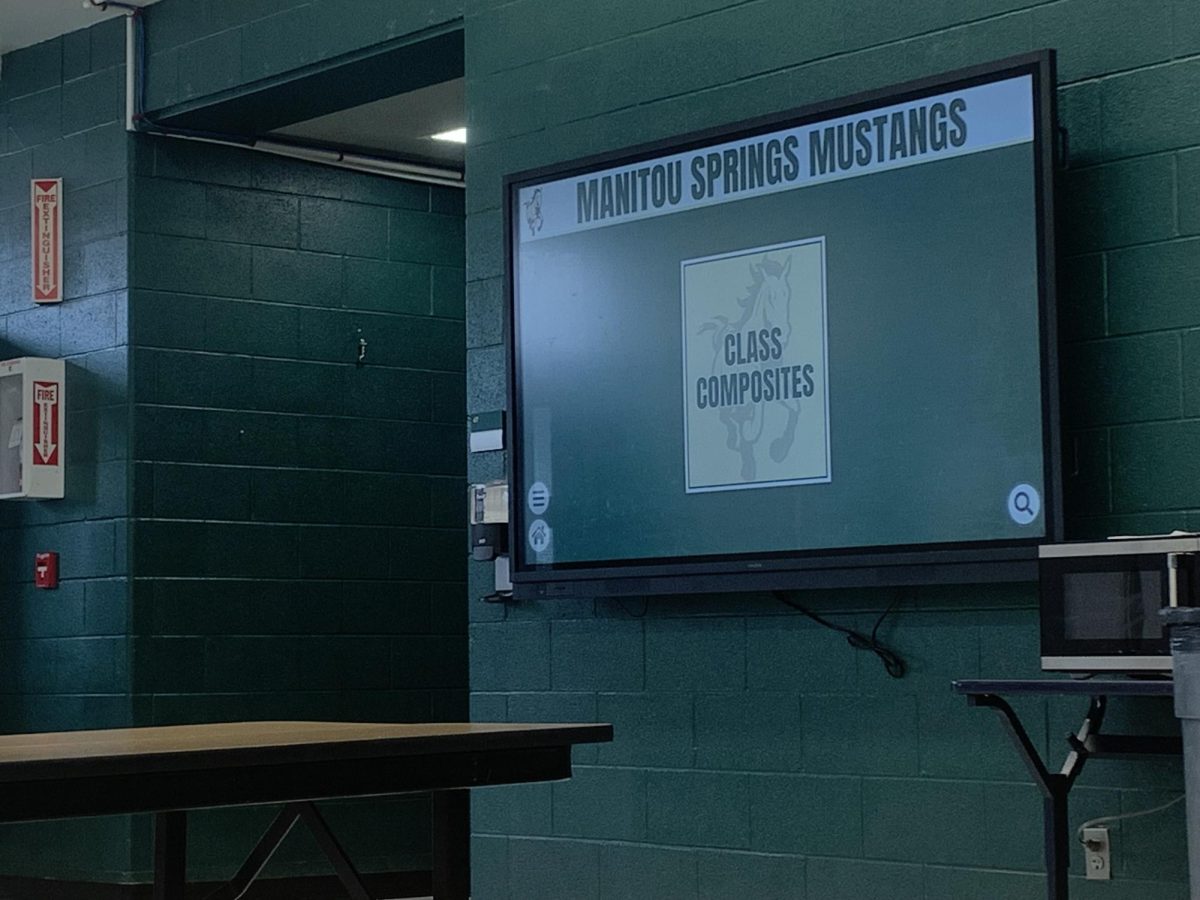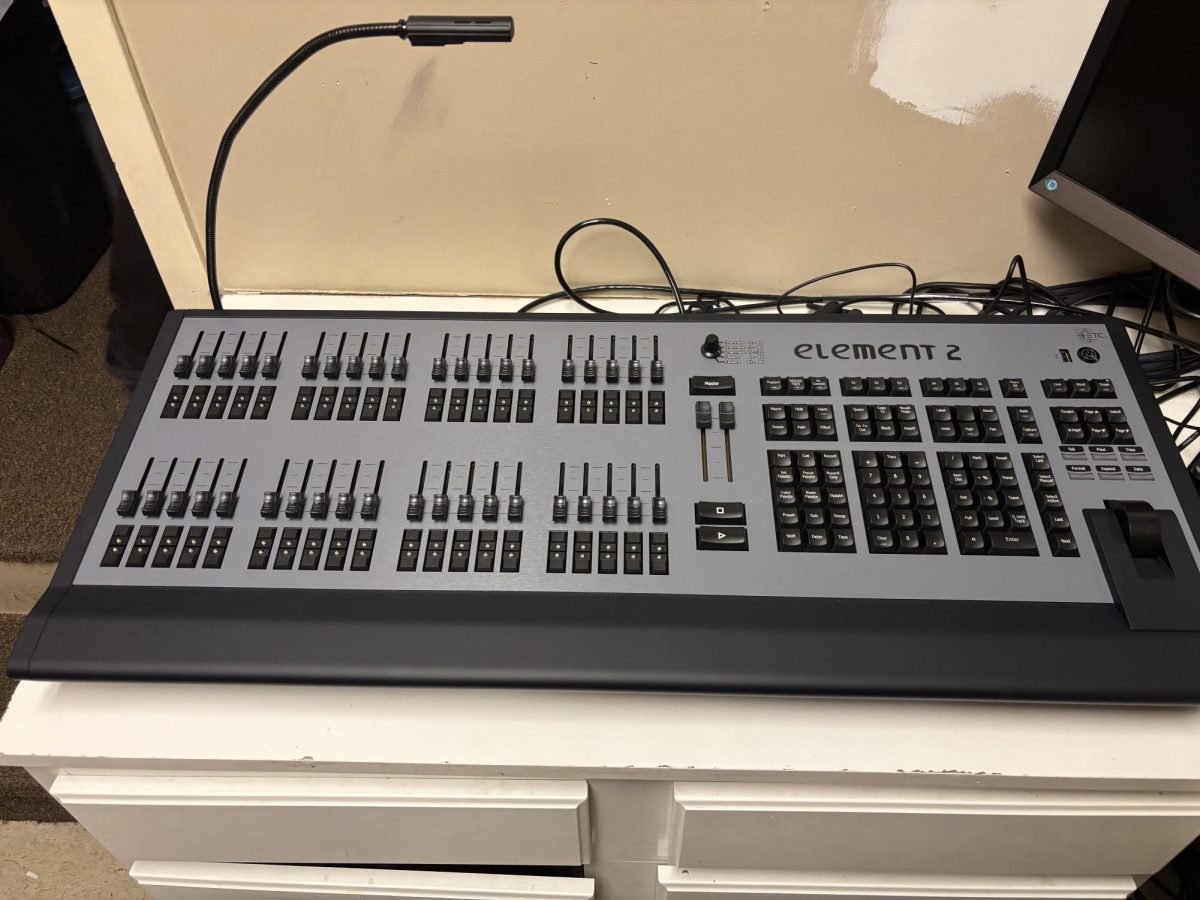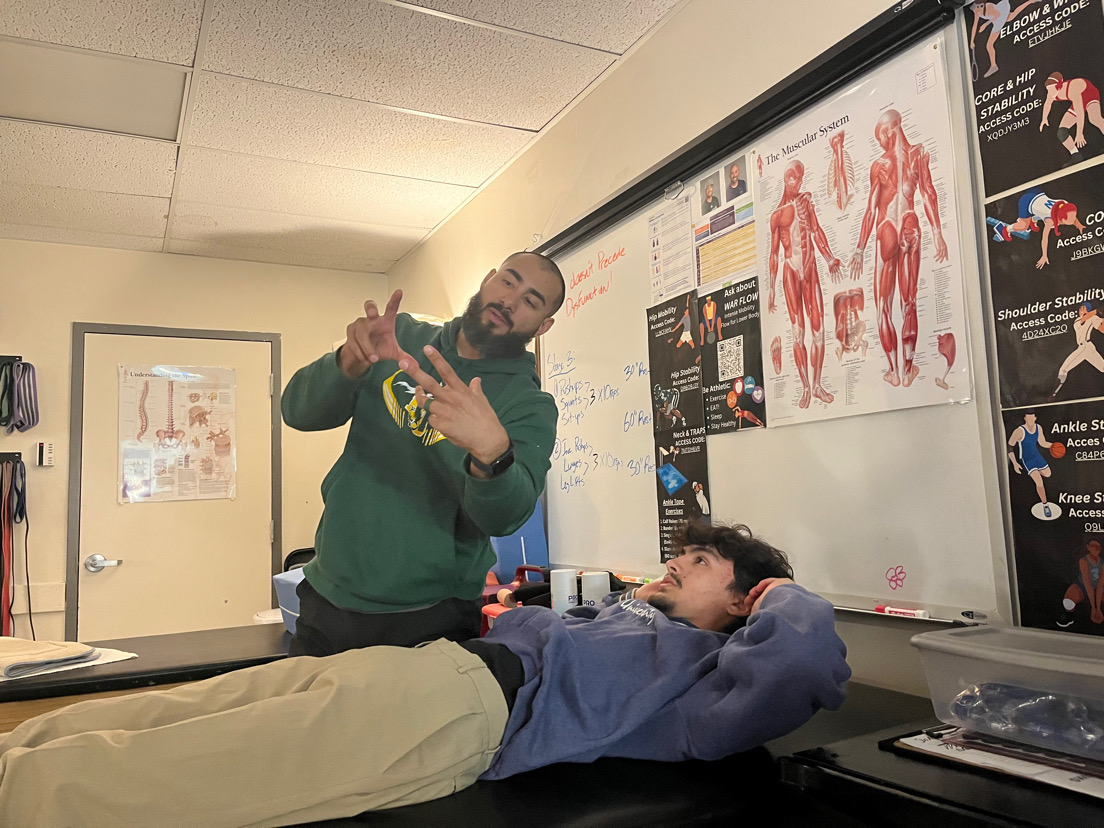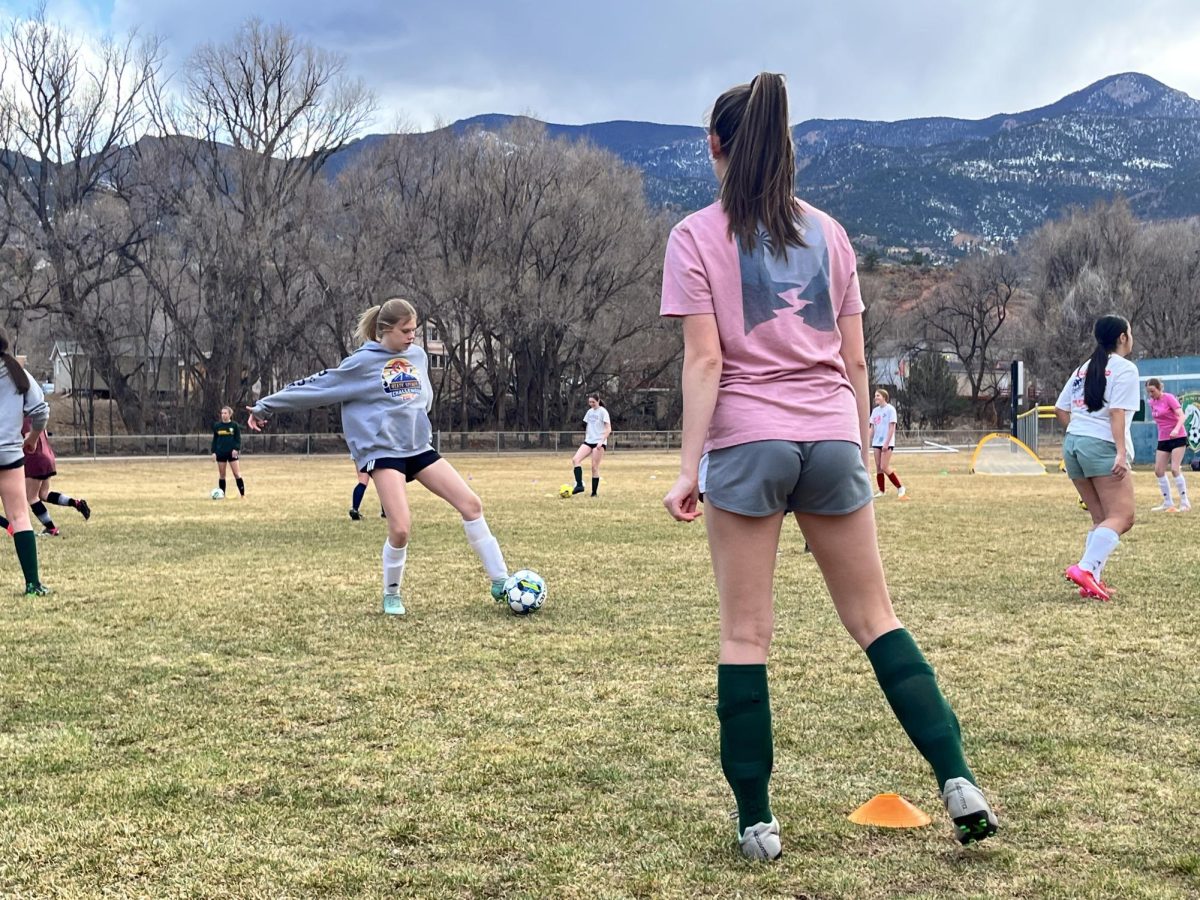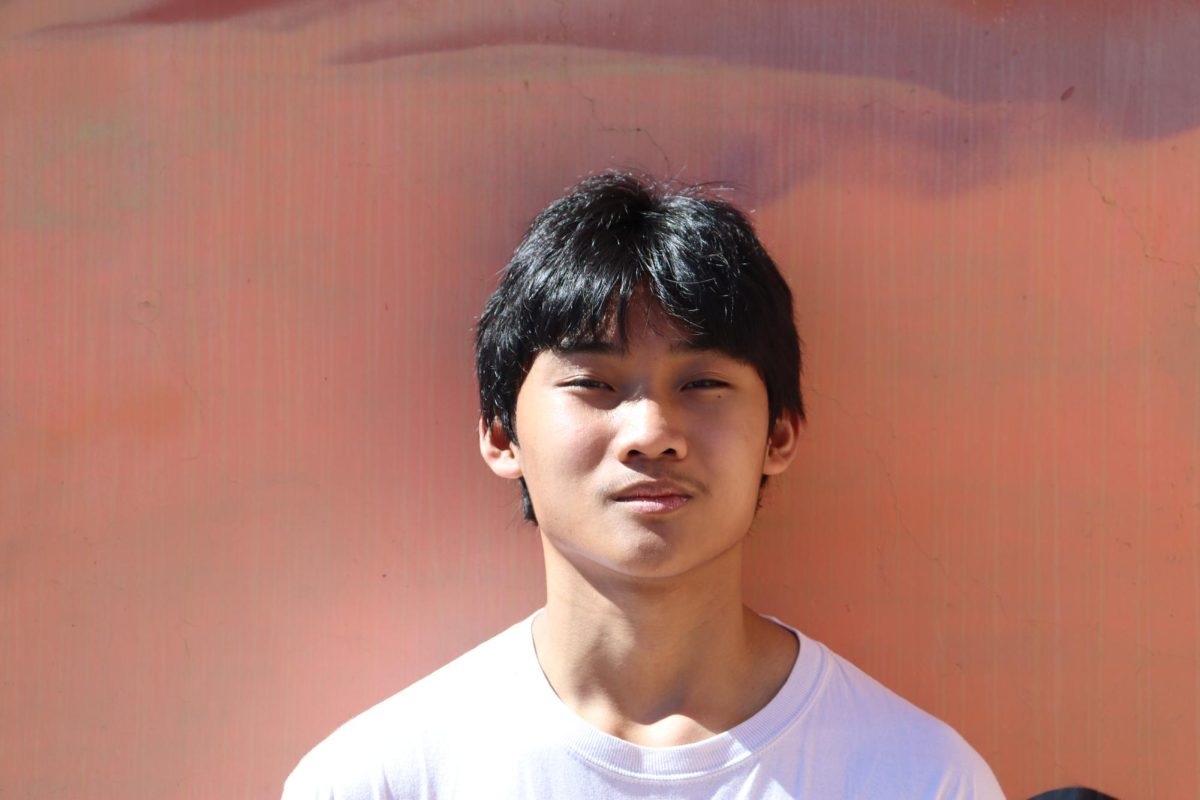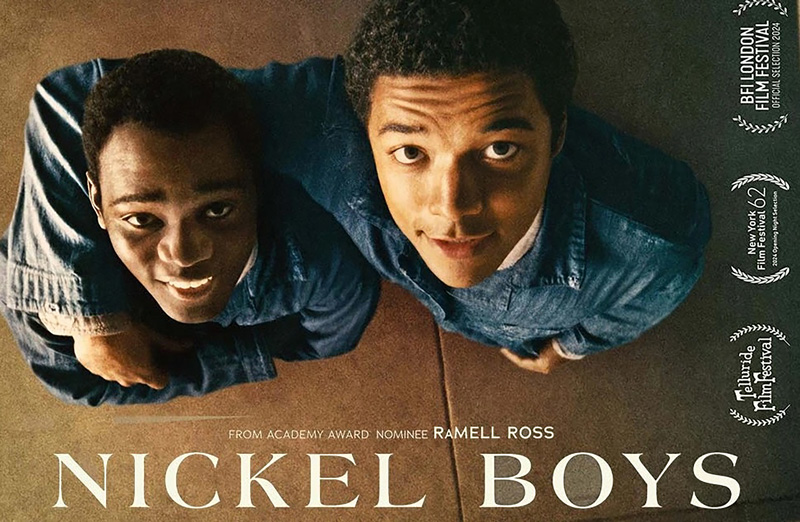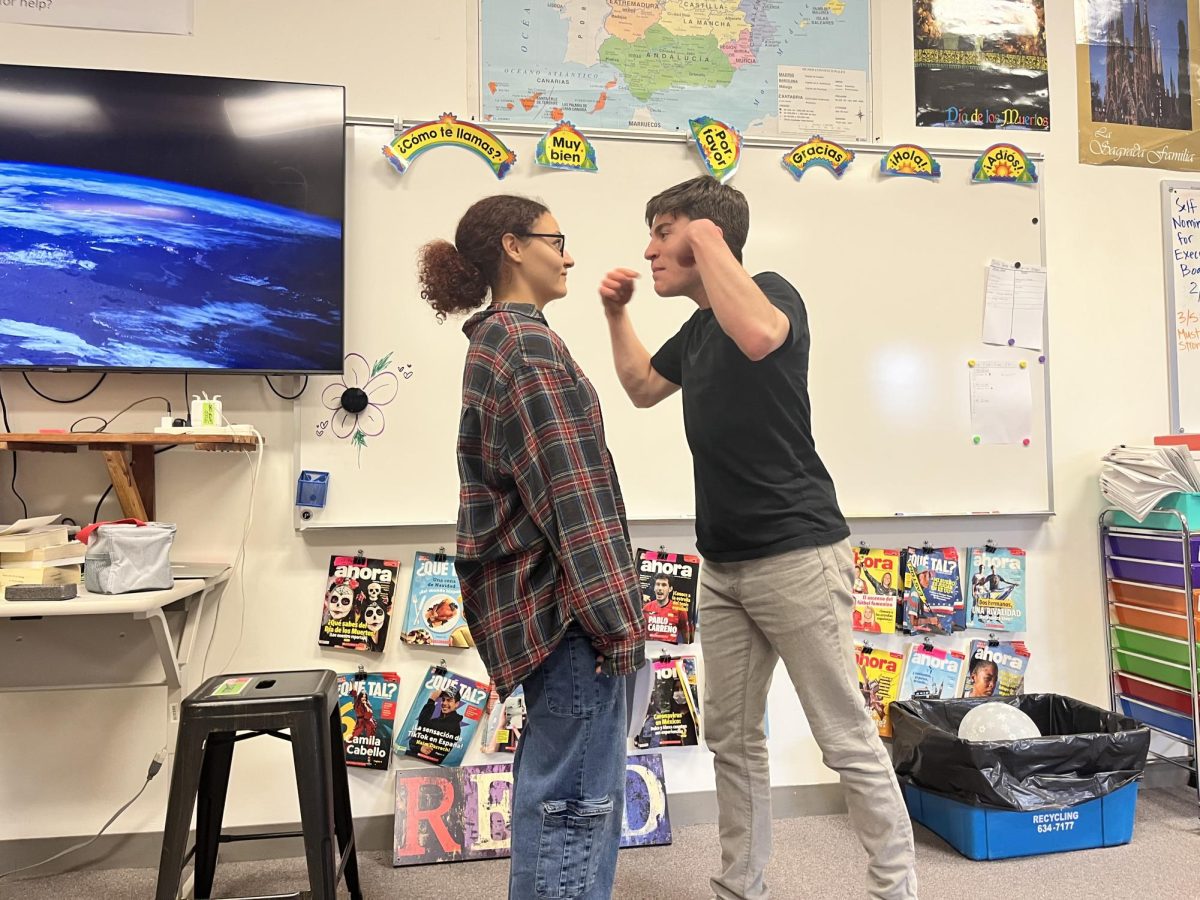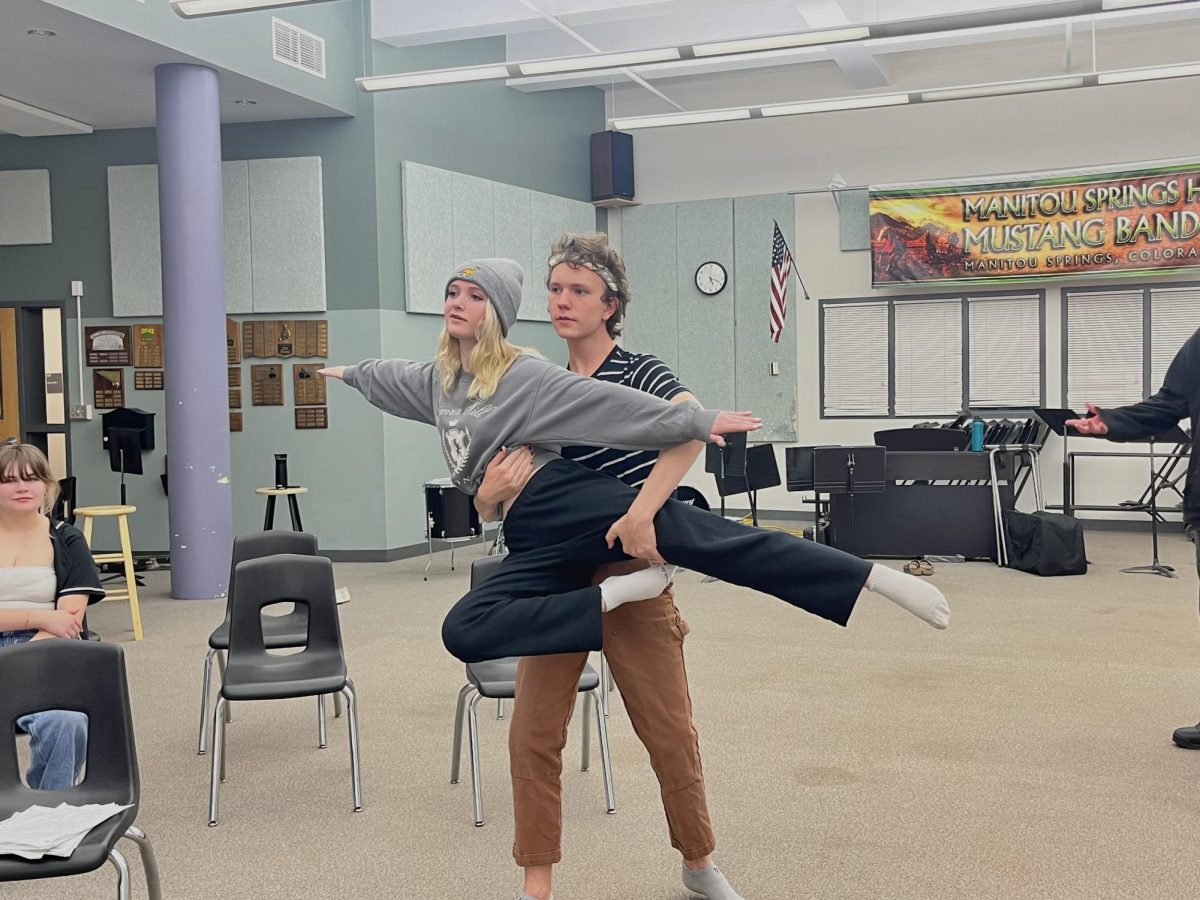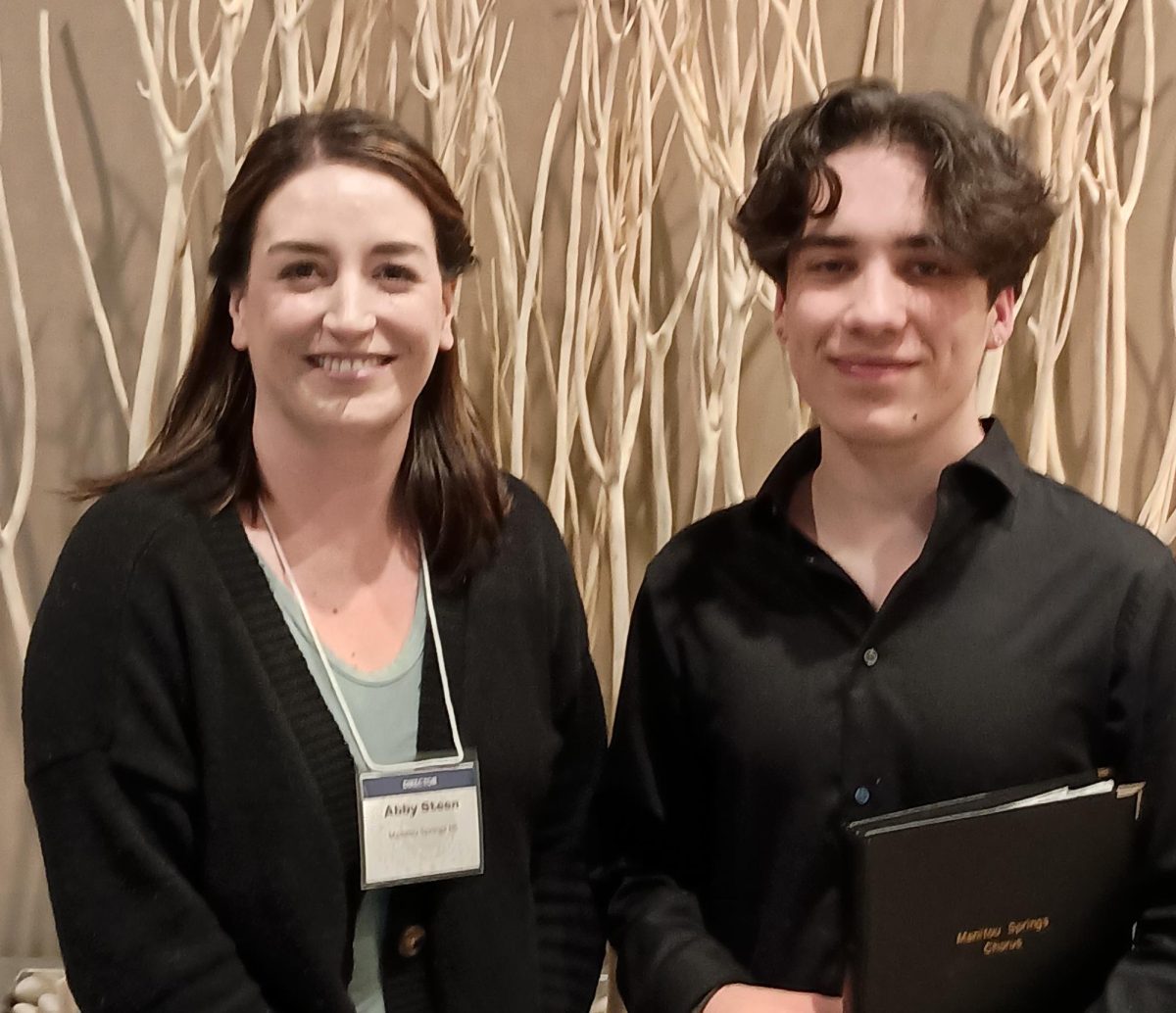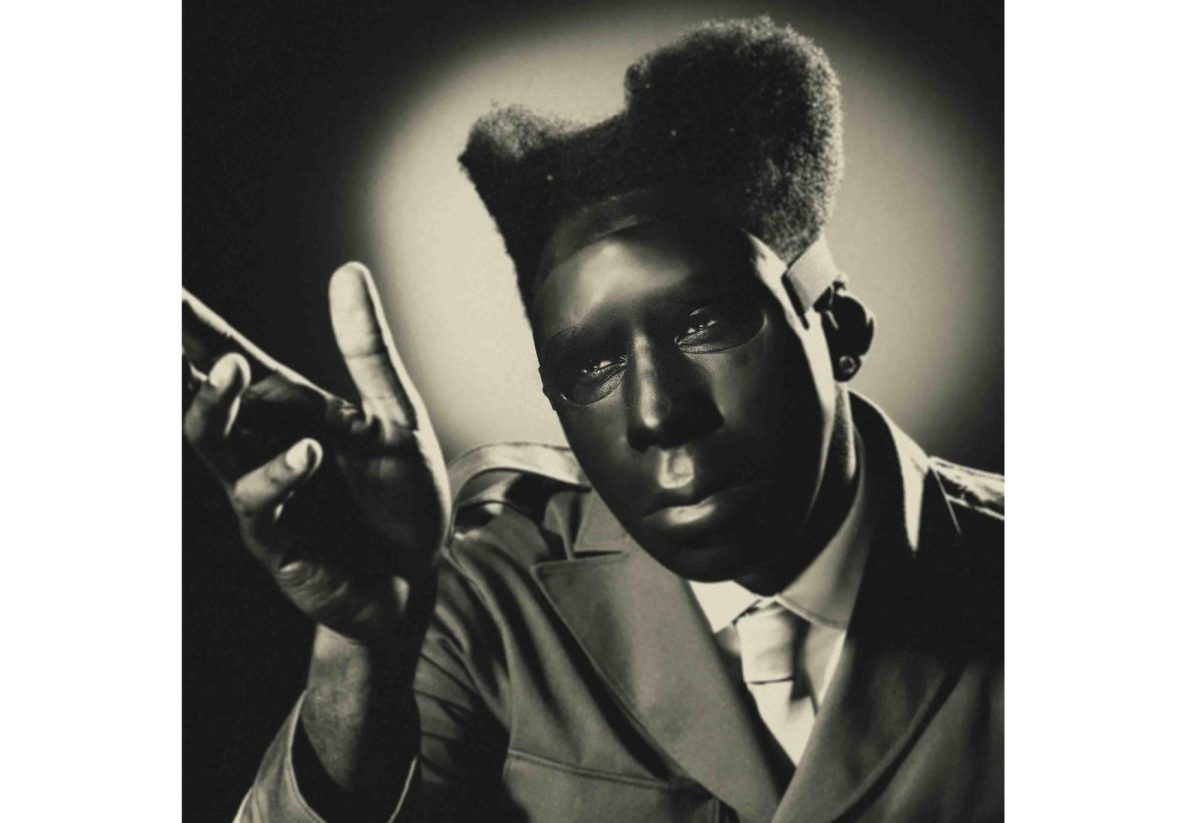Editorial Policy
MSHS Prospector: 2024-2025 Editorial Policy
The MSHS Prospector is the online public forum of Manitou Springs High School. In an effort to maintain journalistic integrity, professionalism, and accurate reporting, the following policies are in place.
Purpose: The purpose of The Prospector is to gather and distribute news, for the intent of informing while serving the general welfare of the Manitou Springs High School community. Additionally, the staff of The Prospector seeks to enable its readers to make an educated, well-informed decisions about issues of the time.
Distribution/Publication: Stories on The Prospector are published on an as-ready basis, and each staff member is responsible for approximately one story every 3 weeks. 1 print edition of The Prospector, “Senior Edition”, are published and distributed to the student body.
Editorial Staff: The editorial staff of the Advanced Journalism Class will oversee operations of the publications and will work to maintain policies in accordance with state, district, and school publication policies. Additionally, the editorial staff will be responsible for choices regarding content, design, and art, as well as story priority.
Members of the editorial staff will include the Editor(s)-in-Chief, section editors, photography editors, social media editor, and the Advanced Journalism adviser(s). Note: the advisers function in a strict guidance capacity only, and are not responsible for any published content.
Funding and Advertising: The majority of funds are raised through advertising and sponsorships.
The Prospector reserves the right to refuse any ad artwork not found to be within the publication’s standards, particularly in reference to products and/or services that are illegal for the majority of high school readers. The Prospector does not endorse the companies (or their products) that buy advertisements either online or in the yearbook. Decisions of the suitability of advertisement content are the sole responsibility of the editorial staff.
If a contract has been written and agreed on, on paper, digitally, or verbally, between a staff member of the MSHS Prospector and the business included, The Prospector retains the right to run the advertisement and charge full price unless otherwise requested, in the form of a refund request.
Advertising Refunds: The MSHS Prospector retains the right to deny a refund to any business if the ad content has already been printed. If the ad is on the MSHS Prospector website, refunds will be offered if requested within 3 business days of the scheduled date that the ad begins running on the site. Refunds can always be offered if the ad has not been printed yet or placed on the website.
Submissions to The Prospector: Work submissions are not limited to staff members of The Prospector. All submissions to the publication are subject to approval by the editorial staff. The Prospector editorial staff reserves the right to alter any and all submissions to fit The Prospector‘s visual and content standards.
Editorial/Opinion/Pro-Con Topics: These topics are selected and researched by the staff member who will write the piece. All approval and responsibility for these topics lie solely with the editorial staff.
Letters to the Editor: Members of the Manitou Springs High School community are invited to submit letters to the editor in an effort to have their opinions heard. Any letters submitted MUST be signed in order to avoid false submissions. All signatures will be verified through a phone call and/or interview. However, those submitting letters may request anonymity. Anonymity is granted by the editorial staff when deemed necessary. Letters to the editor must be no more than 250 words. If a letter exceeds that length, the editorial staff will contact the letter-writer and inquire if they wish for the letter to be published as a story by a contributing writer.
Limitations: The Prospector reserves the right to limit submissions, letters to the editor, or ads that are not within the ethical standard of the publication, particularly with regards to products and/or services that are illegal for the majority of high school readers. Additionally, The Prospector reserves the right to limit those submissions, letters, and/or ads that are not conducive to the Manitou community or atmosphere.
In the Event of an Error: An error constitutes a misidentification, omission, misspelling, etc. Student journalists are bound to make mistakes, as do professionals. The editorial staff will attempt to mitigate the damage. If necessary, corrective actions will be determined by the board on a case by case basis. A retraction/correction will be added to the online article, along with an editor’s note explaining the changes. A variety of precautions are taken to avoid these types of issues. Due to the human factor, errors will occasionally occur.
However, if no factual or grammatical error has been found within a published story, no alterations will be permitted once a story has been published on the website.
Law Violations: As members of a student newspaper, reporters and editors may find themselves aware of violations of the law committed by students that do not involve authorities. However, only crimes and transgressions that result in official charges will be reported in The Prospector. It is not the editorial staff’s goal to embarrass any member of the Manitou Springs High School community, but that discretion must be balanced with the editorial staff’s responsibility to dispel rumors, report the facts and provide perspective on the community.
Obligations: Reporters of The Prospector will always identify themselves as functioning in a formal capacity for the publication before conducting an interview or study. It is not the intention of The Prospector, or its staff, to catch individuals in a compromising situation. Additionally, The Prospector will seek to avoid any embarrassing or misleading quotations.
Sources will not be allowed to read the final text of any story to be published in The Prospector prior to publication. Reporters may read back quotes while interviewing, prior to publication for clarification purposes, or for purposes of followup/supplementation of their initial interviews. The editorial staff will consider the relative experience of the source in dealing with the press in each case.
Profanity: Material considered profane by the community standards of the paper will not be used unless the removal of the words will change the contextual relevance of the statement. Profane words other than “damn” or “hell”, when referencing a direct quote, must always be approved by a majority vote of The Prospector’s editorial staff.
Plagiarism: It is the policy of this publication that NO work containing plagiarism will be accepted. Plagiarism is defined as knowingly submitting someone else’s work while claiming it as an original piece. Submissions found to have plagiarism will NOT be accepted.
Photography: The Prospector reserves the right to deny the use of photos to anyone who requests them. This decision will be made at the discretion of the editorial staff as well as the individual photographer. The use of Prospector photos without the expressed consent of The Prospector editorial staff and the individual photographer is prohibited. Any requests to have photos taken off of The Prospector will be addressed by members of the editorial staff, as well as the individual photographer. The Prospector reserves the right to keep unabridged content on the website, so long as it adheres to the Colorado Student Free Expression Law. Photography portrayed on The Prospector is by no means required to adhere to school policies, including but not limited to dress code and profanity (see section labeled “profanity”).
Video: All video produced that is not considered slanderous will not be taken down. Slander is considered as any statement or action portrayed in a video that is not factual information. Any video of a human being taken in a public space will not be taken down. If video is taken on public property then the video is at the property owner’s discretion. Video which is taken in public domain will not be edited/modified to communicate slander; the whole story will be told. Any reenacted events will have captioning as such.
Social Media: The Prospector will use social media to produce and advertise content, but will not be a consumer to others’ social media. While using Prospector accounts, members of the editorial staff will avoid being a consumer to any other student’s content on social media. Excluded from this policy are messages explicitly addressed to The Prospector, but not emails sent from websites, or “spam”.
Censorship: No administrator, or other staff member, of Manitou Springs District 14 has the right to censor any student publication (with the exception of material deemed to be legally obscene, libelous disruptive, as defined by Colorado Statute). However, the editorial staff takes major responsibility for overseeing good taste and maintenance of community standards. The editors are also charged with maintaining the journalistic integrity of the publication. These are NOT mutually exclusive terms.
Student/Staff Death: In the case of the death or deaths of current or former students and/or staff, The Prospector will cover the death with at least an obituary. The obituary will be journalistically written with an emphasis on the person’s life and, if timely, give the details of the funeral service and/or contribution details. If a suicide is involved, the obituary will say “took his/her own life,” but will not give any details of the suicide. In addition, all stories/packages dealing with any form of death will contain information about death/grief counseling and/or resources. The death may be covered more extensively if the situation warrants as determined by the staff with the guidance of the adviser. As with all content in The Prospector, the editor(s) will make the final decision about the extent of the coverage of the death.
Comments: The online format of The Prospector allows readers to comment and share opinions on individual stories at any time after they are published. All comments are read and approved by an editor or advisor before being published on the website. Anonymous comments are not permitted. Manitou students must identify themselves by first name, last name (or last initial if preferred), and grade. Comments by parents and other community members will be accepted if only a first name is provided.
If a reader is found to have commented under a false identity, featured profanity in their comment, or violated The Prospector’s standard of ethics or good taste, their comment(s) will be immediately removed from the site and they will be placed on a commenting black-list. Situations will be judged by the editorial staff on a case-by-case basis. This comment policy will be in effect as of November 10, 2014.
Colorado Student Free Expression Law
Section 22-1-120 — Rights of free expression for public school students
Became law in June of 1990/ Amended in 2020
22-1-120. Rights of free expression for public school students.
(1) The general assembly declares that students of the public schools have the right to exercise freedom of speech and of the press, and no expression contained in a student publication, whether printed, broadcast, or online, and whether or not such publication is school-sponsored, is subject to prior restraint except for the types of expression described in subsection (3) of this section. An advisor may encourage expression consistent with high standards of English and journalism.
(2) If a publication written substantially by students is made generally available throughout a public school, it shall be a public forum for students of such school.
(3) Nothing in this section shall be interpreted to authorize the publication or distribution in any media by students of the following:
(a) Expression that is obscene;
(b) Expression that is libelous, slanderous, or defamatory under state law;
(c) Expression that is false as to any person who is not a public figure or involved in a matter of public concern; or
(d) Expression that creates a clear and present danger of the commission of unlawful acts, the violation of lawful school regulations, or the material and substantial disruption of the orderly operation of the school or that violates the rights of others to privacy or that threatens violence to property or persons.
(4) The board of education of each school district shall adopt a written publications code, which shall be consistent with the terms of this section, and shall include reasonable provisions for the time, place, and manner of conducting free expression within the school district’s jurisdiction. The publications code shall be distributed, posted, or otherwise made available to all students and teachers at the beginning of each school year.
(5) (a) Student editors of school-sponsored student publications shall be responsible for determining the news, opinion, and advertising content of their publications subject to the limitations of this section. It shall be the responsibility of the publications advisor of school-sponsored student publications within each school to supervise the production of such publications and to teach and encourage free and responsible expression and professional standards for English and journalism.
(b) For the purposes of this section, “publications advisor” means a person whose duties include the supervision of school-sponsored student publications.
(6) If participation in a school-sponsored publication is part of a school class or activity for which grades or school credits are given, the provisions of this section shall not be interpreted to interfere with the authority of the publications advisor for such school-sponsored publication to establish or limit writing assignments for the students working with the publication and to otherwise direct and control the learning experience that the publication is intended to provide.
(7) No expression made by students in the exercise of freedom of speech or freedom of the press shall be deemed to be an expression of school policy, and no school district or employee, or parent, or legal guardian, or official of such school district shall be held liable in any civil or criminal action for any expression made or published by students.
(8) Nothing in this section shall be construed to limit the promulgation or enforcement of lawful school regulations designed to control gangs. For the purposes of this section, the definition of “gang” shall be the definition found in section 19-1-103 (52), C.R.S.
(9) A public school employee must not be dismissed, suspended, disciplined, reassigned, transferred, or otherwise retaliated against solely for acting to protect a student engaged in the conduct authorized pursuant to this section or for refusing to infringe upon conduct that is protected by this section or the first amendment to the United States constitution.
Source: L. 90: Entire section added, p. 1042, 1, effective June 7. L. 98: (8) amended, p. 823, 30, effective August 5. L. 2000: (3) amended, p. 1971, 13, effective June 2. L. 2006: (4) amended, p. 595, 3, effective August 7. L. 2020: (1) amended and (9) added, (HB 20-1062), ch. 79, p. 321, 1, effective September 14.
ANNOTATION
Subsection (1) applies only to written publication, such as school newspapers. The entire context of the statute makes clear that “publication” means written media, such as a student newspaper, since there are numerous provisions pertaining to written speech and journalism but not to oral speech. Corder v. Lewis Palmer Sch. Dist. No. 38, 568 F. Supp. 2d 1237 (D. Colo. 2008), aff’d, 566 F.3d 1219 (10th Cir.), cert. denied, 558 U.S. 1048, 130 S. Ct. 742, 175 L. Ed. 2d 515 (2009).
By its plain terms, therefore, subsection (1) does not apply to valedictorian speech given at high school graduation. Corder v. Lewis Palmer Sch. Dist. No. 38, 568 F. Supp. 2d 1237 (D. Colo. 2008), aff’d, 566 F.3d 1219 (10th Cir.), cert. denied, 558 U.S. 1048, 130 S. Ct. 742, 175 L. Ed. 2d 515 (2009).
Subsection (1) cannot be construed to prohibit a school from regulating speech that could violate the establishment clause of the first amendment. Corder v. Lewis Palmer Sch. Dist. No. 38, 568 F. Supp. 2d 1237 (D. Colo. 2008), aff’d, 566 F.3d 1219 (10th Cir.), cert. denied, 558 U.S. 1048, 130 S. Ct. 742, 175 L. Ed. 2d 515 (2009).


